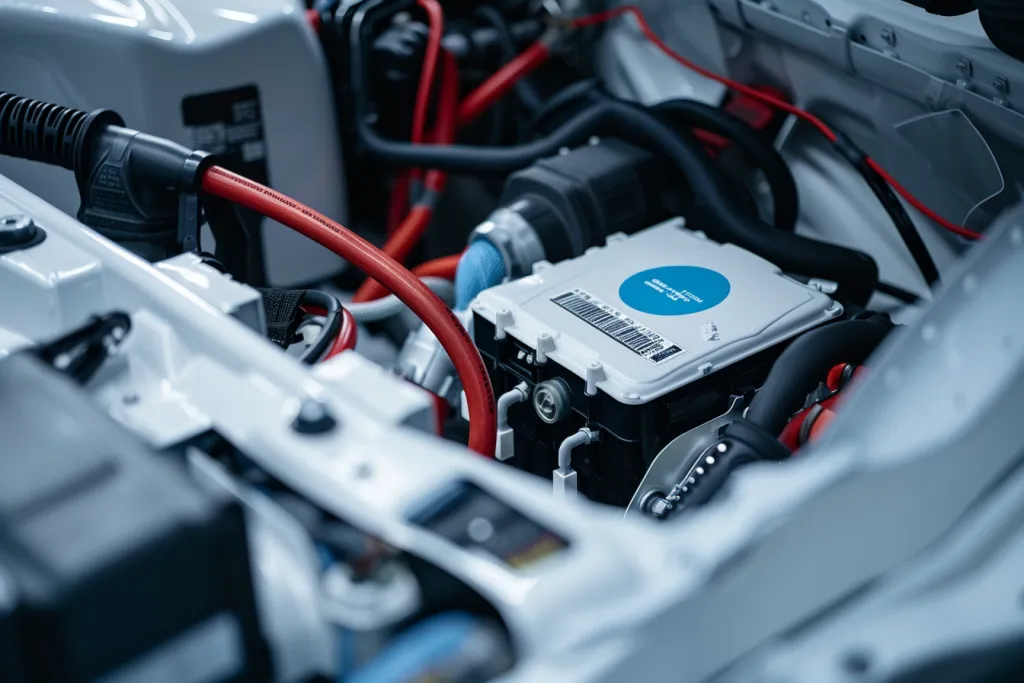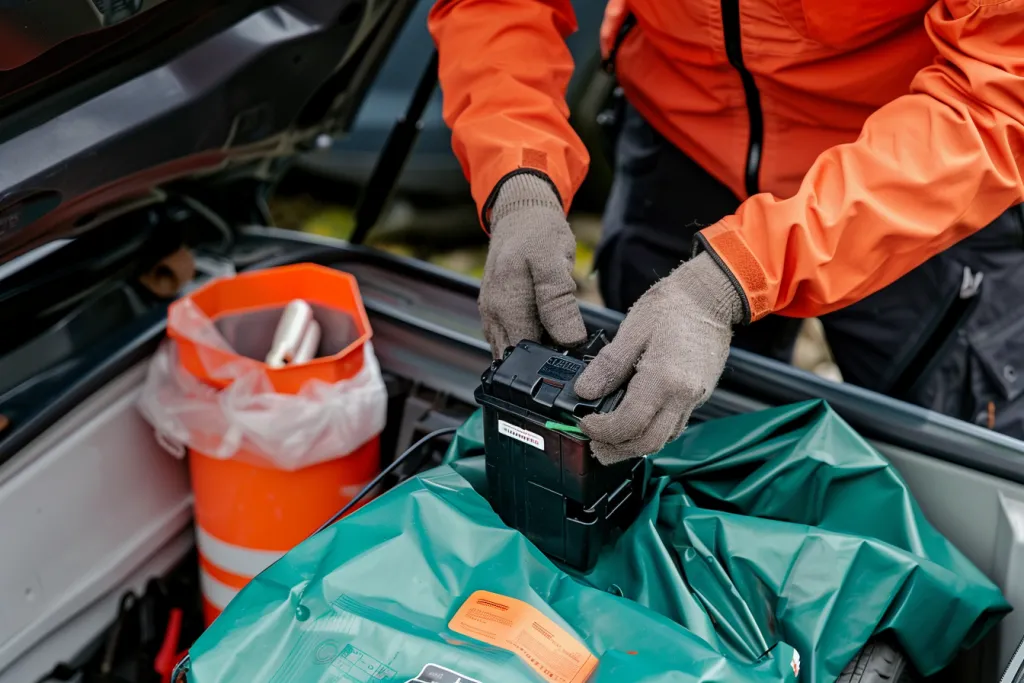A car battery is the unsung hero of your vehicle, silently powering all its electrical components. Understanding when and how to replace it is crucial for every driver. This comprehensive guide will navigate you through the essentials of car battery replacement, ensuring your vehicle remains reliable and ready for the road.
Table of Contents:
– What is a car battery?
– What does a car battery do?
– How to choose a car battery
– How long do car batteries last?
– How to replace a car battery
– How much are car batteries?
What is a car battery?

A car battery is a rechargeable battery that supplies electrical energy to a vehicle. It is a crucial component of the car’s electrical system, primarily made of lead-acid, which stores electricity in a chemical form. Inside, the battery contains cells with lead and lead oxide plates submerged in an electrolyte solution, which facilitates a chemical reaction delivering voltage to the car’s electrical components.
What does a car battery do?

The primary function of a car battery is to power the starter motor, which in turn starts the engine. Once the engine is running, the power for the car’s electrical systems is supplied by the alternator. However, the battery continues to play a vital role, providing energy to systems such as the lights, radio, and navigation system when the engine isn’t running. Additionally, it stabilizes voltage to keep your engine running smoothly.
How to choose a car battery

Choosing the right car battery involves considering several factors, including size, power requirement, and type. The battery size fits into the car’s battery tray and is determined by the make, model, and engine type of your vehicle. The power requirement, expressed in Cold Cranking Amps (CCA), indicates the battery’s ability to start an engine in cold temperatures. Lastly, the type of battery (e.g., lead-acid, AGM, or gel) should be compatible with your vehicle’s charging system.
How long do car batteries last?

The lifespan of a car battery can vary widely depending on usage, maintenance, and environmental conditions. Typically, a car battery lasts between 3 to 5 years. Factors that can affect battery life include frequent short trips, extreme temperatures, and high electrical demand from onboard accessories. Regular maintenance and driving habits that promote battery charging can extend its life.
How to replace a car battery

Replacing a car battery is a straightforward task that most people can do at home with basic tools. First, ensure the vehicle is off and locate the battery. Disconnect the negative terminal first to break the circuit, then the positive terminal. Remove any clamps or bars holding the battery in place, lift the old battery out, and place the new battery in the tray. Reconnect the terminals, positive first, and ensure everything is secure.
How much are car batteries?

The cost of car batteries varies based on type, power, and brand. Generally, you can expect to pay anywhere from $50 to $200 for a new car battery. Premium batteries with longer lifespans and higher CCA ratings can cost more. While the initial investment may seem high, choosing a battery that matches your vehicle’s requirements can save money in the long run by avoiding premature replacement.
Conclusion:
Car battery replacement is an essential maintenance task that ensures your vehicle remains operational and reliable. By understanding the basics of what a car battery is, what it does, and how to choose and replace one, you can make informed decisions that keep your vehicle running smoothly. Remember, a well-maintained car battery not only starts your engine but also powers your journey forward.





 Afrikaans
Afrikaans አማርኛ
አማርኛ العربية
العربية বাংলা
বাংলা Nederlands
Nederlands English
English Français
Français Deutsch
Deutsch हिन्दी
हिन्दी Bahasa Indonesia
Bahasa Indonesia Italiano
Italiano 日本語
日本語 한국어
한국어 Bahasa Melayu
Bahasa Melayu മലയാളം
മലയാളം پښتو
پښتو فارسی
فارسی Polski
Polski Português
Português Русский
Русский Español
Español Kiswahili
Kiswahili ไทย
ไทย Türkçe
Türkçe اردو
اردو Tiếng Việt
Tiếng Việt isiXhosa
isiXhosa Zulu
Zulu